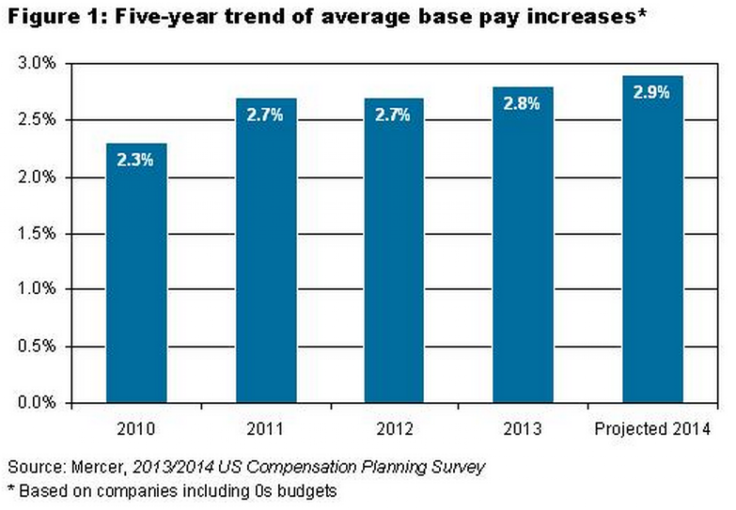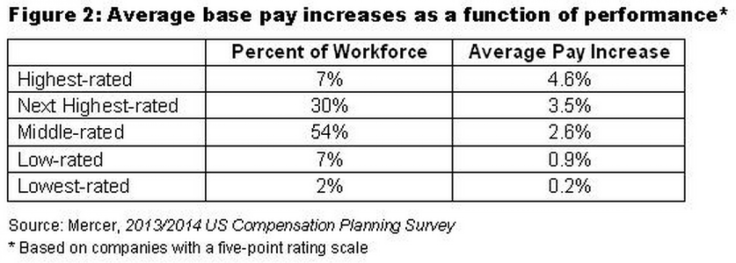Employers Expect To Raise Worker Pay In 2014 By Just 2.9% On Average, With Huge Disparities Based On Performance

U.S. employers expect they will raise pay for their workers by only slightly next year above this year's average.
Mercer's latest survey, released Tuesday, shows that, despite a strengthening economy, base salaries are expected to rise by only 2.9 percent in 2014, just modestly better than 2013's 2.8 percent and 2012's (and 2011's) 2.7 percent.
Although it is a significant improvement since recession levels in 2009, when salary raises averaged 2.1 percent, next year's anticipated raises are still far below levels seen in the mid-2000s when they averaged around 3.5 percent, according to the annual survey of 1,500 mid-size and large U.S. employers, which covered employees from executives and managers all the way down the chain to clerical and service workers.
Mercer's results say this is partly due to the high unemployment rate, which was still 7.6 percent in June. Many respondents feel they still have the upper hand when it comes to hiring and they can retain employees without increasing salary offers.
But Jeanie Adkins, a partner in Mercer's Rewards practice, says to remain competitive, employers will be forced to increase pay eventually, especially among top-performing workers.
"Employers recognize that their greatest challenge is to retain their top performers to avoid post-recessionary flight," said Adkins. "This means they have to reward them."

The survey showed that almost half of all projected raises for 2014 will go to the top third of workers and they are expected at a level of 4.6 percent compared with 0.2 percent on average for the worst performers.
Meanwhile, 0.9 percent of the study's firms forecast wage freezes for 2014. That will compare to 3.7 percent that said they froze salaries in this year, which was already down dramatically from the 6.5 percent of firms that froze wages in 2012.
© Copyright IBTimes 2025. All rights reserved.






















